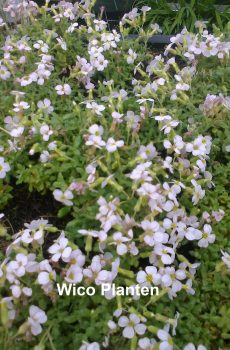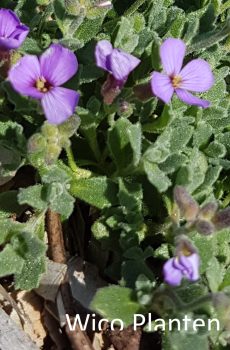-
Aubrieta
Aubrieta ‘Fiona’
De witte vorm van de Aubretia heeft als voordeel boven de Arabis-varieteiten dat ze compact groeien. Door de witte bloemkleur minder voor de hand ligt in dit geslacht is ze door de lagere groeisnelheid ook prima in de rotstuin.
-
Aubrieta
Aubrieta alpicola
Dit soort heb ik in 2009 gekocht van een zaadhunter uit het Roemenië onder deze naam. Tot op dit moment heb ik de naam niet teruggevonden in de literatuur. Alpicola betekent gevonden in het hooggebergte. Het is een makkelijke plant die zodevormend is en rijkbloeiend.
Aubrieta
In het Nederlands Aubrieta genaamd.
De familie is Brassicaceae.
De sierwaarde zijn de bloemen.
Aubrieta is vernoemd naar de Franse plantenschilder Claude Aubriet.
Na de bloei alle bloemstengels terug knippen, ook de (te lange) kale takjes, de plant loopt uit het hart opnieuw uit en dan vooral bijmesten. Ook mooi te gebruiken als randbeplanting langs het terras/pad.
Toont alle 2 resultaten

